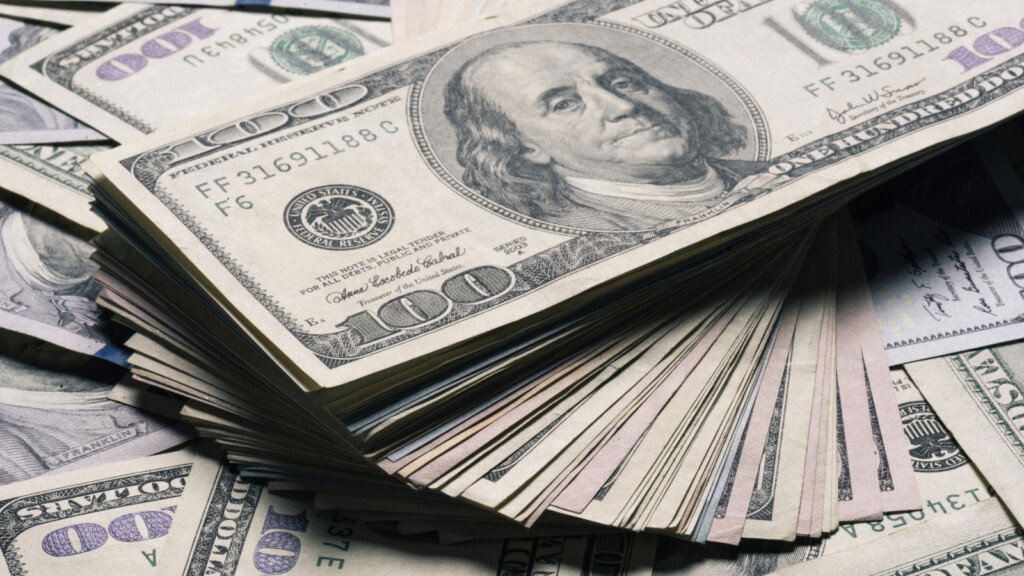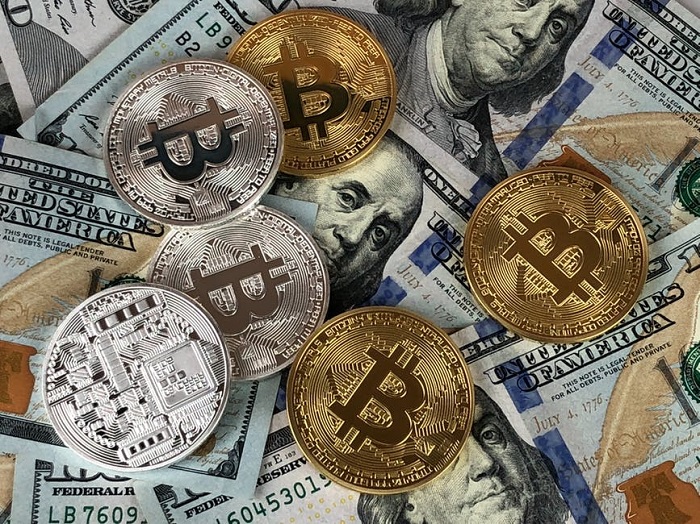
Why Do Governments Dislike Cryptocurrency?
It's no secret that most governments are not too keen on the idea of cryptocurrencies like Bitcoin. What might be less obvious is why it seems to freak out the power that is so much. So in this article, I'd like to go over a few reasons the people in charge get a shiver down their spine. Whenever Bitcoin, Monero or Ethereum are mentioned. Why Do Governments Dislike Cryptocurrency?
Why is Money Worth Anything?
To understand the main problem they have, we need to talk about the money everyone uses already. Money today isn't at all like money in the past. At one point, money had intrinsic value. Equal to value the precious metals it was made from.
Eventually, we switched to cash as a sort of token, that stood as a symbol for that precious metal or other resources. In other words, if a currency was backed by gold or silver, you could trade your cheap paper money note for gold equaling its value.
These days, we mainly use something known as "fiat" currency. It's got nothing to do with those cure Italian cars! "Fiat" basically means that a dollar is worth something because the US government says that it is. That is to say, the money is backed by promises. The theoretical value of the economy that supports it.
Governments Control the Money Supply
One big effect of switching to a fiat currency model is that the government has control over the total supply of money. This has both positive and negative aspects to it, but in the wrong hands, this sort of power can be catastrophic.
For example, some governments have been tempted to print lots of extra money to pay off government debts. This works, because the market value of the money is based on the total supply before the new bills are printed.
However, adding to the money supply dilutes the value of the currency if the economy itself has not grown in value to a commensurate degree. That leads to a price adjustment to reflect the real value of each currency unit. It means the money in your bank account can now buy less, effectively inflating the prices of everything.
If the money printing really goes crazy, it can lead to insane levels of hyperinflation, making money worthless virtually overnight.
Cryptocurrencies Don't Need Governments
Cryptocurrencies are completely decentralized. No one owns or controls them. It uses cryptography and its core public ledger system (known as the blockchain) to manage all transactions securely.
Whereas the government sits atop a sophisticated banking system that has high levels of control over the flow of money, cryptocurrencies have absolutely no one in charge.
Now you should already have an idea of why cryptocurrencies freak out governments. If we all shifted to cryptocurrency, they would have no more control over monetary supply. Cryptocurrencies like Bitcoin have a fixed supply, which makes them resistant to inflation. It's akin to digital gold in the sense that there is only so much of it in total. Of course, Bitcoin can be infinitely divided, so there's flexibility on that end of the spectrum as well. The point is that you can't pump more Bitcoin into the market and take advantage of delayed market corrections.
Crypto Makes Taxation Harder
Governments are funded through taxation. Whenever money moves from one party to another, the state takes a slice. That's not a bad thing in the principle of course. That money is used for the collective good. Roads, hospitals, police and all other services and infrastructure are provided through tax money.
However, the decline of cash and the rise of digital transactions means that governments can really milk their citizens for everything they are worth. There's potential for some really draconian measures and unpalatable levels of taxation. For example, the Laffer Curve describes a point where increasing taxation actually leads to less tax income. Because people are motivated to evade taxes. Alternatively, they simply don't bother to earn more money. Because the after-tax amounts aren't worth the effort.
Cryptocurrencies are one potential way for people to seek refuge for taxation. It would also make taxation virtually impossible if people switched to it instead of fiat currency.
Cryptocurrencies have strong privacy. Although they may not be truly anonymous! Most taxation systems rely on the fact that most people are basically honest with their taxes. Since the penalties are severe and the chances you'll be caught are moderate to high. If people stuffed their crypto wallets full of undeclared assets, it might tank entire governments.
Governments Dislike Cryptocurrency Since It Limits Privacy Invasion
How much of a right to privacy you have, depends on where in the world you live. However, in every country with a modern monetary system, governments can use their oversight over transactions to piece together information about your life that perhaps isn't really any of their business.
For states that very much want to shove their noses deep into the private lives of their citizens, crypto is a problem. It's why there is a strong drive to de-anonymize currencies like Bitcoin. Which has succeeded to some extent? However, new currencies have stronger privacy and techniques such as Bitcoin tumbling further muddies the trail. This doesn't seem like something governments can overcome technologically.
Digital Cash Amplifies the Problems of Physical Cash
If you didn't know, there's a limit to how much cash the state allows you to take out of a country. You need to declare amounts over a certain limit and if you don't it could mean jail time!
That's because cash is anonymous and largely untraceable. Especially if criminals have laundered it. That's why illegal operations often work largely in cash. Since the transactions can't be easily linked to a specific person or organization.
Governments all over the world have been working to reduce cash use. There have been projects to remove large bills from circulation. That means the state is forcing transactions of a certain size to be done electronically. Where the state can monitor it. Governments also want to eliminate cash in order to force largely untaxed informal economic activities into the light. One well-known example of this is the 2016 demonetization of the 500 and 1000 Rupee notes in India. Officially the reasons given relate to corruption and the funding of terrorism. However, the other effects I mention remain the same regardless.
Cryptocurrencies make the problems of cash for governments look like nothing in comparison. While you couldn't easily move a billion dollars in paper money from one country to another, it would be exceedingly simple to move any amount of Bitcoin stored locally. On a flash drive, in a cloud drive or over a secured encrypted connection.
It Makes Sanctions Harder to Enforce
When one government doesn't approve of what another does, it has the option of imposing sanctions to pressure them into reforming. How effective sanctions are at this, rather than simply making innocent citizens suffer, is a matter of debate.
However, it's clear that sanctioned countries can use cryptocurrencies as a way to undermine sanctions. With a much lower chance of the state detecting it.
This idea has occurred to North Korea, which at one point indicated that it would launch its own cryptocurrency. This would allow sympathetic outsiders (or just those looking for new markets) to pump money into the isolationist nation. Iran is also looking into cryptocurrency as a way to get around severe US sanctions. Obviously, if sanctions don't mean as much because cryptocurrencies allow for hidden trade, then it could mean a shift in the balance of power.
Oppressive Governments Fear Crypto with Good Reason
While nations like North Korea might be looking to create their own cryptocurrencies with an eye on digging themselves out of the sanction hole, oppressive governments also have good reason to be wary of cryptocurrencies over which they have no control. Economic oppression, in particular, is a tool that the people can take out of the hands of those governments. If their citizens start using invisible, untraceable cash, that's a bad development for any tyrant.
Law and Order Issues
This is one you've probably heard of already since most governments are happy to use the idea that cryptocurrencies are a recipe for the crime apocalypse ad nauseam.
It is, however, true that currencies like Bitcoin have enabled massive black markets to spring up online. Combined with "dark web" technology, people have traded drugs, guns and every other illegal item you can think of online.
Of course, in the greater scheme of things, these criminal activities still pale in comparison to the same illegal activities conducted using cash, but we've already established that governments would very much like a cashless society. So it makes sense that this aspect of cryptocurrency would irk them.
Government Fears about Cryptocurrency May Be Misplaced
When it comes to politics and policies, things are almost never proactive. Society comes up with something new and disruptive and then the creaking gears of bureaucracy slowly move to regulate it. It's something we've seen many times over history, but the pace of change in the modern era might be a little too much for the old ways of doing things.
This means that, while understandable, government fears about crypto are misplaced. The decentralized technology and philosophy behind it are inevitable. We can't stuff it back into Pandora's box. So it would be much more constructive for governments to work on ways that these new currencies can be integrated into society. In a way that's beneficial as a whole.
Now you have some idea why governments dislike cryptocurrency. It's a new technology, which means there's still lots of regulation coming. However, it may take an entire generational change within the ruling classes before we see a change in attitude. Until then, it will be quite a ride!
Do you think governments should embrace cryptocurrencies? Let us know down below in the comments. Lastly, we’d like to ask you to share this article online. And don’t forget that you can follow TechNadu on Facebook and Twitter. Thanks!













